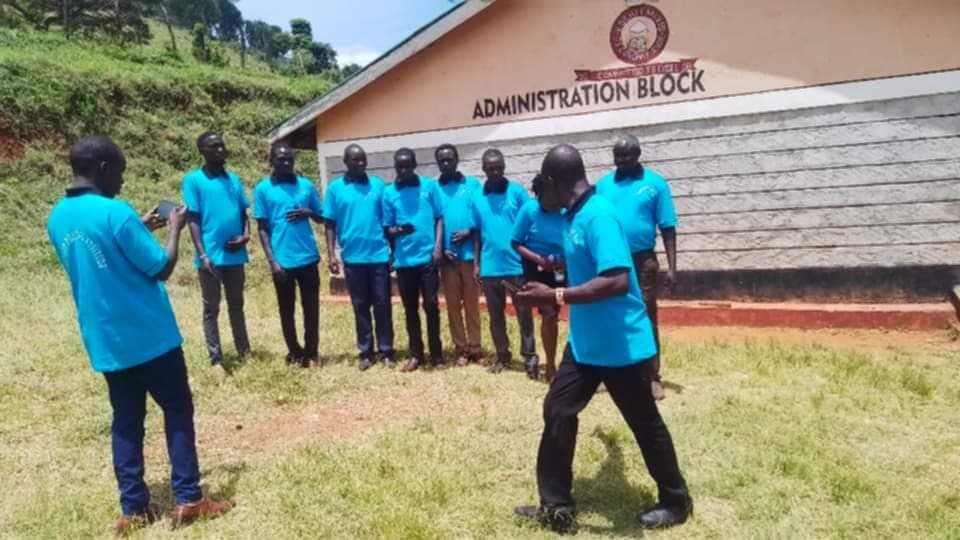Big Changes for P1 Teachers as Government Merges DPTE and ECDE into New Diploma in Teacher Education (DTE)

Teachers taking a photo

Introduction to the New Diploma in Teacher Education
The recent merger of the Diploma in Primary Teacher Education (DPTE) and the Early Childhood Development Education (ECDE) programs into the newly established Diploma in Teacher Education (DTE) marks a significant milestone in the realm of educator training. This integration is a response to the evolving demands of the educational landscape, necessitating a more cohesive and comprehensive approach to teacher preparation. The amalgamation of these programs is not only a strategic decision but also a reflection of the growing understanding of the interconnectedness between primary education and early childhood development.
The primary objective of this merger is to provide educators with a well-rounded curriculum that enhances their teaching capabilities across different educational stages. By combining the expertise embedded in both DPTE and ECDE, the DTE program aims to cultivate a new generation of teachers who are equipped to address the diverse needs of learners in an increasingly complex educational environment. This initiative recognizes that effective teaching is essential from the earliest stages of child development and carries profound implications for student learning outcomes throughout their educational journey.
Objectives and Curriculum of the DTE Program
The Diploma in Teacher Education (DTE) has been meticulously designed to merge the foundational principles of the previous Diploma in Primary Teacher Education (DPTE) and Early Childhood Development Education (ECDE) programs. The primary objective of the DTE program is to equip educators with a robust theoretical and practical framework that is essential for effective teaching in both primary and early childhood settings. This dual focus recognizes the interconnectedness of learning experiences across different educational stages, thus enhancing the teacher’s ability to address a wide range of developmental needs.
The curriculum of the DTE program is comprehensive, integrating key areas such as pedagogy, child development, assessment strategies, and inclusive education. In the domain of pedagogy, the program emphasizes the development of versatile teaching methods that cater to diverse learning styles and environments. Future educators are trained to implement various instructional techniques, ensuring they can engage all learners effectively, regardless of their backgrounds or abilities.
Furthermore, a strong focus on child development principles is embedded in the curriculum, allowing teachers to understand the cognitive, emotional, and social growth of their students. This knowledge enables future educators to create age-appropriate learning experiences that facilitate holistic development.
Assessment strategies form another pivotal component, equipping teachers with the necessary tools to evaluate student progress thoughtfully. The curriculum promotes the use of formative and summative assessment techniques while advocating for feedback as an integral part of the learning process. Lastly, inclusive education features prominently, ensuring that all educators are competent in addressing the varying needs of learners, including those with disabilities or special educational needs.
Collectively, these program objectives and curricular components highlight the commitment of the DTE program to produce well-rounded educators who can effectively contribute to the diverse educational landscape.
Implications for Future Educators
The introduction of the new Diploma in Teacher Education (DTE), reinstated through the merger of the Diploma in Primary Teacher Education (DPTE) and Early Childhood Development Education (ECDE) programs, carries significant implications for the future of educators. This new curriculum has been designed to adapt to contemporary educational demands, thereby enhancing career prospects for graduates. As students assimilate diverse teaching methodologies and developmental theories, they emerge as versatile professionals, equipped to address the multifaceted needs of learners across various levels of education.
One of the primary advantages of the DTE program is its potential to elevate teaching standards. By encompassing both primary and early childhood education, the program emphasizes a holistic approach that acknowledges the continuum of learning from early years to primary schooling. Educators who graduate from this comprehensive program are expected to possess a robust foundation in pedagogical techniques, child development, and curriculum planning, ensuring they can effectively implement innovative teaching strategies. This not only raises the quality of education but also fosters a more skilled educator workforce, benefitting students, schools, and communities alike.
Moreover, the DTE program addresses the increasing demand for qualified teachers in diverse educational settings. With the global emphasis on quality education, stakeholders such as school administrators and policymakers recognize the necessity for competent educators. Testimonials from current educators underscore the positive influence that the DTE curriculum has had on their professional journeys. They convey sentiments of enhanced preparedness and confidence in their ability to teach effectively, contributing to overall improved student outcomes. These expert opinions align with broader educational reforms aimed at nurturing high-caliber teaching professionals capable of navigating the challenges of modern education.
As educational systems evolve, the merger of DPTE and ECDE into the new DTE program is poised to make a significant mark in shaping the future of teaching and learning. The implications of this change resonate across various dimensions of the education sector, ultimately benefiting future educators and the learners they teach.
Challenges and Opportunities Ahead
The integration of the Diploma in Teacher Education (DPTE) and the Early Childhood Development and Education (ECDE) programs presents numerous challenges that stakeholders must navigate to ensure successful implementation. One major challenge is resource allocation. Educational institutions may face difficulties in securing adequate funding and physical resources necessary for developing the curriculum and instructional materials. Additionally, managing the logistics of merging programs can strain existing infrastructure, requiring substantial investment in facilities and technology.
Another significant hurdle involves faculty training. The transition to a combined DPTE and ECDE program necessitates that educators possess a diverse skill set that encompasses both early childhood education and general teaching methodologies. Therefore, existing faculty members will need professional development opportunities focused on collaborative teaching practices and innovative pedagogies. This process requires not only financial investment but also a commitment to fostering growth among the teaching staff.
Despite these challenges, the new Diploma in Teacher Education offers exciting opportunities for innovation and collaboration. By merging the two programs, the education sector can create a more cohesive approach to teacher training, emphasizing the developmental needs of learners from an earlier age. This aligns with contemporary educational research emphasizing the importance of early learning experiences in shaping future academic success.
Moreover, the integration encourages stronger partnerships among educational institutions, communities, and government agencies. Collaborative efforts can lead to resource sharing, collaborative training programs, and joint research initiatives, ultimately enriching the teacher education landscape. To leverage these opportunities, strategic planning and stakeholder engagement will be crucial for creating supportive networks that advocate for the program’s success.
In conclusion, while the journey toward a unified Diploma in Teacher Education is fraught with challenges, it simultaneously opens doors for transformative practices in teaching and learning. By addressing potential obstacles and harnessing collaborative potential, educators can pave the way for a more balanced and effective educational framework.




